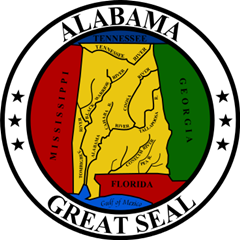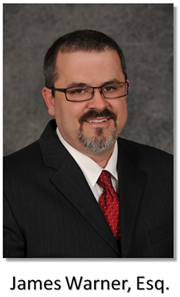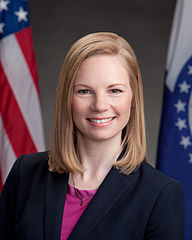September 20, 2016 •
Tuesday Lobbying and Campaign Finance News Update
Lobbying Tennessee: “Memphis Lawmaker Defends Decision to Accept Free Trip to Europe” by Jody Callaham for The Tennessean Campaign Finance “MLB a Little Late to the Game with FEC Filings” by Ashley Balcerzak for Center for Responsive Politics “Trump Shatters […]
 Lobbying
Lobbying
Tennessee: “Memphis Lawmaker Defends Decision to Accept Free Trip to Europe” by Jody Callaham for The Tennessean
Campaign Finance
“MLB a Little Late to the Game with FEC Filings” by Ashley Balcerzak for Center for Responsive Politics
“Trump Shatters GOP Records with Small Donors” by Shane Goldmacher for Politico
New York: “Campaign Finance Board Considers Rules Changes, Including Controversial ‘Coordination’ Proposal” by Samar Khurshid for Gotham Gazette
Ethics
California: “Former L.A. Coliseum Executive Sentenced to Jail in Corruption Case” by Joseph Serna and Rong-Gong Lin II for Los Angeles Times
Florida: “Opa-locka Lawsuit Describes Sordid World of Threats, Shakedowns” by Michael Sallah and Jay Weaver for Miami Herald
New Jersey: “U.S. Says for First Time That Christie Knew of Bridge Plot” by David Voreacos and Elise Young for Bloomberg.com
Elections
“Some Republicans Acknowledge Leveraging Voter ID Laws for Political Gain” by Michael Wines for New York Times
“Donald Trump’s Anything-Goes Campaign Sets an Alarming Political Precedent” by Jonathan Martin for New York Times
September 19, 2016 •
Monday News Roundup
Lobbying “Chaka Fattah’s K Street Friends Stand by Him” by Sean McMinn for Roll Call “Nonprofit Seeks to Crowdfund Lobbying” by Megan Wilson for The Hill Campaign Finance “Whom to Vote for? Employees Tend to Follow Their Leader” by Andrew […]
 Lobbying
Lobbying
“Chaka Fattah’s K Street Friends Stand by Him” by Sean McMinn for Roll Call
“Nonprofit Seeks to Crowdfund Lobbying” by Megan Wilson for The Hill
Campaign Finance
“Whom to Vote for? Employees Tend to Follow Their Leader” by Andrew Ross Sorkin for New York Times
“New Records Shed Light on Donald Trump’s $25,000 Gift to Florida Official” by Kevin Sack and Steve Eder for New York Times
Florida: “Appeals Court Declines to Put Campaign-Finance Rules on Ballot” by Douglas Hanks for Miami Herald
Ethics
“White House Women Want to Be in The Room Where It Happens” by Juliet Eilperin for Washington Post
Connecticut: “Wade to Recuse Herself from Anthem-Cigna Review” by Mark Pazniokas for Connecticut Mirror
Elections
“Sowing Doubt Is Seen as Prime Danger in Hacking Voting System” by David Sanger and Charlie Savage for New York Times
“Clinton Campaign Releases Doctor’s Letter Describing ‘Mild’ Pneumonia” by Abby Phillip and Anne Gearan for Washington Post
Virginia: “Va. Supreme Court Finds McAuliffe Not in Contempt on Felon Voting Actions” by Laura Vozzella for Washington Post
Legislative Issues
“Why the U.S. Economy Lags: It’s the politics, stupid” by Paul Davidson for USA Today
September 16, 2016 •
NYCU Video Digest – September 16, 2016
See what’s happening in government relations this week with our Video Digest. Enjoy!
See what’s happening in government relations this week with our Video Digest. Enjoy!
September 16, 2016 •
News You Can Use Digest – September 16, 2016
National: How the Sugar Industry Shifted Blame to Fat New York Times – Anahad O’Connor | Published: 9/12/2016 In 1967, the Sugar Research Foundation, the precursor to the Sugar Association, paid Harvard scientists about $50,000 in today’s money to discredit a […]

National:
How the Sugar Industry Shifted Blame to Fat
New York Times – Anahad O’Connor | Published: 9/12/2016
In 1967, the Sugar Research Foundation, the precursor to the Sugar Association, paid Harvard scientists about $50,000 in today’s money to discredit a link now widely accepted among scientists, that consuming sugar can raise the risk of cardiovascular disease. Instead, the industry and the scientists pinned the blame squarely, and only, on saturated fat. Even though the influence-peddling revealed in the documents dates back nearly 50 years, more recent reports show the food industry has continued to influence nutrition science.
Real-Time Election Day Projections May Upend News Tradition
New York Times – Nick Corasaniti | Published: 9/10/2016
Television networks and newspapers have traditionally agreed not to reveal the information they gather through exit polling to their audiences until polls close. Journalists keep that information to themselves, campaigns track the outcome with their own methodologies, and voters are left without access to information about how the election is going in real time. Now, a new company called VoteCastr is seeking to upend that reporting tradition, providing detailed projections of who is winning at any given time on Election Day in key swing states, and updating the information in real time. The plan is likely to cause a stir among those involved in reporting election results, who worry about both accuracy and an adverse effect on how people vote.
Federal:
Congressman Offers Unusual Defense in Ethics Probe
Center for Public Integrity – John Dunbar | Published: 9/13/2016
U.S. Rep. Roger Williams, a Texas Republican under investigation by the House ethics committee, says he did nothing wrong when he offered an amendment that would benefit car dealers, despite the fact that he himself is a car dealer. Members of Congress may not use their positions for personal financial benefit. But Williams asserted he did not profit from his actions. Instead, Williams revealed, he offered the amendment at the behest of a lobbyist. And the lobbyist – whose employer, the national Automobile Dealers Association, one of Williams’ top donors – sent along “proposed language” for the text of the amendment. There is no timetable for when the committee will rule. But regardless of what happens, Williams’ defense offers a rare glimpse at how business is often done in the Capitol.
How Donald Trump Retooled His Charity to Spend Other People’s Money
Washington Post – David Fahrenthold | Published: 9/10/2016
An investigation of the Donald J. Trump Foundation found it collects and spends money in a very unusual manner. For one thing, nearly all of its money comes from people other than Trump. In tax records, the last gift from Trump was in 2008. Since then, all of the donations have been other people’s money, an arrangement that experts say is almost unheard of for a family foundation. Trump then takes that money and generally does with it as he pleases. In many cases, he passes it on to other charities, which often are under the impression it is Trump’s own money. Foundation money has also been used for political purposes, which is against the law. Trump paid a penalty this year to the IRS for a 2013 donation in which the foundation gave $25,000 to a campaign group affiliated with Florida Attorney General Pamela Bondi.
How These Powerful Women Learned to Love Fundraising
Washington Post – Elise Viebeck | Published: 9/12/2016
Lawmakers frequently think fundraising is the worst part of their job, but it has become critical to their success as the cost of campaigns skyrockets. According to interviews with more than a dozen women in Congress, raising campaign funds poses unique challenges for women entering politics and seeking to rise through the ranks. Building a war chest is essential to female politicians as they work to get elected and to secure a seat at the leadership table, which involves both campaigning and fundraising for colleagues. Scholars have found women exhibit more negative attitudes toward fundraising and express more concern about attracting donors, to the point that it can deter some from running for office.
Lobbying Registrations Are Down, But The Influence Industry Is Flourishing
Washington Post – Catherine Ho | Published: 9/12/2016
This year, for the ninth consecutive time, the number of registered lobbyists in Washington, D.C. has fallen. The figure has dropped from about 14,800 in 2007 to 10,500 today. But ask virtually any member of K Street’s booming influence industry and they will tell you there are not fewer lobbyists, there are just fewer people labeling themselves as such. Eschewing the lobbyist label in favor of more palatable designations such as policy adviser, strategic counsel, or government relations adviser is not new. But it appears to have grown more prevalent during the two terms of President Obama, who put greater restrictions on lobbyists working in the executive branch than any other president.
From the States and Municipalities:
California – Jury Finds Azano Guilty on 36 Counts in Foreign Money Case
San Diego Union-Tribune – Dana Littlefield and Greg Moran | Published: 9/9/2016
A Mexican businessperson accused of making illegal campaign donations to candidates in San Diego’s 2012 mayoral race was convicted of 36 counts, including conspiracy to make political contributions by a foreign national. José Susumo Azano Matsura also was found guilty in federal court of making contributions in other people’s names and falsifying records. As a foreign citizen without legal status in the U.S., Azano was prohibited by law from donating to domestic campaigns. Although he lived in a Coronado Cays and both his wife and son were U.S. citizens, Azano did not have a green card or any immigration status that would allow him to financially support political campaigns in this country.
Florida – Judge Orders Campaign-Finance Question Put on Miami-Dade Ballot
Miami Herald – Douglas Hanks | Published: 9/9/2016
Circuit Court Judge William Thomas ordered that Miami-Dade voters get a chance to decide on new rules for campaign contributions, reversing a decision by county commissioners to keep the measure off the November ballot because of alleged legal flaws. The judge ruled the union-backed group behind the proposal to ban county contractors and their lobbyists from donating to county candidates followed all the required steps to secure a ballot slot. County lawyers appealed Thomas’ decision.
Michigan – House Candidate Steve Marino Retracts Claims from Secret Recordings
Detroit Free Press – Paul Egan | Published: 9/11/2016
Michigan House candidate Steve Marino disavowed ever picking up bar tabs for state lawmakers as a lobbyist after Democrats released audio recordings showing him making the claims. Marino, a Macomb County commissioner who was a registered lobbyist from 2013 to 2015, said that despite the way he described the events, they did not involve him personally. Instead, he said the stories were composites patched together from events he had witnessed or heard about over the years.
Missouri – Court: Missouri voters can decide if they want to bring back limits on campaign contributions
St. Louis Post-Dispatch – Kurt Erickson | Published: 9/13/2016
A state appeals court ruled that a measure re-imposing campaign contribution limits in Missouri can be placed on the November ballot. The initiative would ask voters whether they want to cap donations to individual candidates to $2,600 and limit contributions to a political party to $25,000. The referendum would ban the current practice of funneling money through different committees to hide the source of the money. Opponents say the initiative unfairly limits some classes of businesses and associations from giving money to campaigns. They vowed to appeal the ruling to the state Supreme Court.
Pennsylvania – Gas-Dealing Pa. Game Commission Official Ordered to Pay $75K Fine
Philadelphia Inquirer – Andrew Maykuth | Published: 9/13/2016
William Capouillez, a retired Pennsylvania Game Commission official, will pay a $75,000 fine over his side business. While he was director of the Bureau of Wildlife Habitat Management, Capouillez negotiated gas leases with drilling companies on behalf of private landowners while overseeing Game Commission leases with the same companies. He agreed to the fine in exchange for no further action by the state Ethics Commission, but the head of the ethics panel said Capouillez still faced possible criminal charges. The Ethics Commission said the $75,000 penalty represented just a portion of the amount Capouillez earned since 1996, when he began operating his business. But it said most of the alleged violations occurred before the agency’s five-year statute of limitations expired.
Tennessee – Jeremy Durham Expelled from Tennessee House in 70-2 Vote
The Tennessean – Joel Ebert and Dave Boucher | Published: 9/13/2016
The Tennessee House voted to expel state Rep. Jeremy Durham following allegations of widespread sexual harassment. The vote followed an attorney general’s investigation that detailed allegations of improper sexual contact with at least 22 women over the course of his four years in office. House Speaker Beth Harwell effectively quarantined Durham from other lawmakers, staff, and lobbyists in April, moving his office across the street and barring him from entering the main legislative area other than for official business. The move came after state Attorney General Herbert Slatery said Durham could pose a risk to “unsuspecting women” at the Capitol complex.
Virginia – Prosecutors Will Drop Case Against Former Va. Governor Robert McDonnell
Washington Post – Rachel Weiner and Matt Zapotosky | Published: 9/8/2016
The Justice Department decided to drop all charges against former Virginia Gov. Bob McDonnell following a U.S. Supreme Court ruling that vacated his original conviction on corruption charges. As a result, McDonnell’s legal ordeal effectively ends. The justices ruled McDonnell, convicted in 2014 and sentenced to two years in prison for helping a personal donor navigate the state bureaucracy, had not performed any official acts on the donor’s behalf. For federal prosecutors, the case carries grave implications. It likely will make it more difficult for them to use federal bribery, extortion, and fraud statutes against public officials.
Wisconsin – Report: Lead paint makers helped Gov. Walker
Milwaukee Journal Sentinel – Jason Stein and Patrick Marley | Published: 9/14/2016
A new report sheds new light on the relationships between Gov. Scott Walker and donors to the Wisconsin Club for Growth during the governor’s 2012 recall election. The Guardian U.S. sifted through 1,500 leaked documents from a probe into Walker’s campaign. The documents show $750,000 in donations to Wisconsin Club for Growth from Harold Simmons, the owner of one of the leading producers of lead used in paint until it was banned. Walked signed into law changes passed by the Republican-led Legislature that would have made companies like NL Industries effectively immune from compensation claims for lead paint poisoning. One document shows a lobbyist for NL Industries suggested the language that should be used to make the effective immunity retroactive. The phrase suggested by the lobbyist is the one that was added to an amendment, which was signed into law but later blocked by a federal court.
 State and Federal Communications produces a weekly summary of national news, offering more than 60 articles per week focused on ethics, lobbying, and campaign finance.
State and Federal Communications produces a weekly summary of national news, offering more than 60 articles per week focused on ethics, lobbying, and campaign finance.
September 15, 2016 •
Thursday News Roundup
Lobbying “Changing of the Guard at Lobbying Powerhouse” by Megan Wilson for The Hill Campaign Finance “Judge Hints Could Remand Disclosure Case to FEC” by Kenneth Doyle for Bloomberg BNA Missouri: “Court: Missouri voters can decide if they want to […]
 Lobbying
Lobbying
“Changing of the Guard at Lobbying Powerhouse” by Megan Wilson for The Hill
Campaign Finance
“Judge Hints Could Remand Disclosure Case to FEC” by Kenneth Doyle for Bloomberg BNA
Missouri: “Court: Missouri voters can decide if they want to bring back limits on campaign contributions” by Kurt Erickson for St. Louis Post-Dispatch
Wisconsin: “Report: Lead paint makers helped Gov. Walker” by Jason Stein and Patrick Marley for Milwaukee Journal Sentinel
Ethics
“How Donald Trump Retooled His Charity to Spend Other People’s Money” by David Fahrenthold for Washington Post
New York: “New York Attorney General to Investigate Donald Trump’s Nonprofit” by Steve Eder for New York Times
Pennsylvania: “Gas-Dealing Pa. Game Commission Official Ordered to Pay $75K Fine” by Andrew Maykuth for Philadelphia Inquirer
Elections
“The Rise of GOP Mega-Donor Rebekah Mercer” by Matea Gold for Washington Post
Ohio: “Supreme Court Upholds Ohio Voting Restrictions” by Richard Wolf for USA Today
September 14, 2016 •
Wednesday Government Relations News
Lobbying “How the Sugar Industry Shifted Blame to Fat” by Anahad O’Connor for New York Times “Lobbying Registrations Are Down, But The Influence Industry Is Flourishing” by Catherine Ho for Washington Post “Congressman Offers Unusual Defense in Ethics Probe” by […]
 Lobbying
Lobbying
“How the Sugar Industry Shifted Blame to Fat” by Anahad O’Connor for New York Times
“Lobbying Registrations Are Down, But The Influence Industry Is Flourishing” by Catherine Ho for Washington Post
“Congressman Offers Unusual Defense in Ethics Probe” by John Dunbar for Center for Public Integrity
Campaign Finance
“How These Powerful Women Learned to Love Fundraising” by Elise Viebeck for Washington Post
Ethics
California: “Ex-Assemblyman Tom Calderon Is Sentenced to a Year in Federal Custody in Bribery Case” by Joel Rubin for Los Angeles Times
Connecticut: “Wade Faces Subpoena in Cigna Conflict of Interest Question” by Mark Pazniokas for Connecticut Mirror
Florida: “Former Opa-locka City Manager Pleads Guilty in Corruption Probe” by Jay Weaver and Michael Sallah for Miami Herald
New York: “Bill Nojay, Upstate Assemblyman, Dies After Shooting Himself at a Cemetery” by Vivian Yee for New York Times
Elections
“Appeals Court Overrules Federal Election Official on Proof of Citizenship for Voting” by Josh Gerstein for Politico
Legislative Issues
Tennessee: “Jeremy Durham Expelled from Tennessee House in 70-2 Vote” by Joel Ebert and Dave Boucher for The Tennessean
September 13, 2016 •
Tuesday Lobbying and Campaign Finance News Update
Lobbying Michigan: “House Candidate Steve Marino Retracts Claims from Secret Recordings” by Paul Egan for Detroit Free Press New York: “De Blasio’s Nonprofit Must Comply with Ethics Panel’s Subpoena, Judge Says” by J. David Goodman for New York Times Campaign […]
 Lobbying
Lobbying
Michigan: “House Candidate Steve Marino Retracts Claims from Secret Recordings” by Paul Egan for Detroit Free Press
New York: “De Blasio’s Nonprofit Must Comply with Ethics Panel’s Subpoena, Judge Says” by J. David Goodman for New York Times
Campaign Finance
California: “Jury Finds Azano Guilty on 36 Counts in Foreign Money Case” by Dana Littlefield and Greg Moran for San Diego Union-Tribune
Colorado: “Colorado Supreme Court Set to Hear Appeal Over Legal Services Being Treated Like Campaign Contributions” by Tom McGhee for Denver Post
Florida: “Judge Orders Campaign-Finance Question Put on Miami-Dade Ballot” by Douglas Hanks for Miami Herald
Washington: “I-1464 Seeks Big Changes to Washington State Campaign-Finance System” by Rachel LaCorte (Associated Press) for Seattle Times
Ethics
Texas: “Empower Texans Escalates Battle with Ethics Commission” by Patrick Svitek for Texas Tribune
Virginia: “Prosecutors Will Drop Case Against Former Va. Governor Robert McDonnell” by Rachel Weiner and Matt Zapotosky for Washington Post
Elections
“Real-Time Election Day Projections May Upend News Tradition” by Nick Corasaniti for New York Times
“Hillary Clinton Is Set Back by Decision to Keep Illness Secret” by Amy Chozick and Patrick Healy for New York Times
September 12, 2016 •
Alabama Ethics Commission Approves Advisory Opinion
On September 1, 2016, the Alabama Ethics Commission unanimously approved an opinion clarifying when a state employee may seek private employment. The opinion stated no public employee may ask a lobbyist for a job or a job interview, but may […]
 On September 1, 2016, the Alabama Ethics Commission unanimously approved an opinion clarifying when a state employee may seek private employment.
On September 1, 2016, the Alabama Ethics Commission unanimously approved an opinion clarifying when a state employee may seek private employment.
The opinion stated no public employee may ask a lobbyist for a job or a job interview, but may seek employment from principals without quitting their current jobs. As always, state employees must be aware of any conflicts of interest that may emerge in the pursuit of private sector employment.
The opinion will be effective following a 30-day public comment period on October 1, 2016.
September 12, 2016 •
Broward County Hospital System Launches Website for Lobbyist Registration
Broward Health, the county’s hospital system, has implemented its decade-old lobbyist registration policy through a new website. The website contains information about the policy, registration procedures, and expenditure reporting. Lobbyists engaged to lobby the North Broward Hospital District, its Board […]
 Broward Health, the county’s hospital system, has implemented its decade-old lobbyist registration policy through a new website. The website contains information about the policy, registration procedures, and expenditure reporting.
Broward Health, the county’s hospital system, has implemented its decade-old lobbyist registration policy through a new website. The website contains information about the policy, registration procedures, and expenditure reporting.
Lobbyists engaged to lobby the North Broward Hospital District, its Board of Commissioners, or its employees must register with the Vice President for Government Relations prior to engaging in lobbying. There is a registration fee of $40 for each client represented and registrations must be renewed by July 1 each year. Registered lobbyists must also file an annual statement of expenditures by July 30, covering July 1 of the prior year through June 30.
The policy also outlines requirements for lobbyist hired to represent the Hospital District before certain state, county, and local government units.
More information regarding lobbyist policies and procedures is available on Broward Health’s website at https://app.browardhealth.org/lobbyist.
September 12, 2016 •
Monday News Roundup
Lobbying “Lobbyists Prepare for Clinton Win” by Megan Wilson for The Hill Campaign Finance “Prolific Donor Trump, Often Skirted Rules, Paid Fines” by Drew Griffin, David Fitzpatrick, and Tom LoBianco for CNN California: “Political Paradox? Prop. 59 Asks Californians to […]
 Lobbying
Lobbying
“Lobbyists Prepare for Clinton Win” by Megan Wilson for The Hill
Campaign Finance
“Prolific Donor Trump, Often Skirted Rules, Paid Fines” by Drew Griffin, David Fitzpatrick, and Tom LoBianco for CNN
California: “Political Paradox? Prop. 59 Asks Californians to Condemn a Big-Money System Long Used Here” by Laurel Rosenhall for CALmatters.org
Illinois: “Judge: Illinois campaign finance law constitutional” by Michael Tarm (Associated Press) for State Journal-Register
Oregon: “Portland Reconsiders Public Money for Political Campaigns” by Brad Schmidt for Portland Oregonian
South Dakota: “Panel Ponders Allowing Businesses to Open Checkbooks for Candidates” by Bob Mercer for Black Hills Pioneer
Ethics
California: “Scandal Plagues City of Commerce, but Generous Services Help Blunt Public Scrutiny” by Adam Elmahrek for Los Angeles Times
Elections
“Hillary Clinton’s ‘Invisible Guiding Hand’” by Shane Goldmacher for Politico
Minnesota: “U Launches First-of-Its-Kind Program for Elections Officials” by Kelly Smith for Minneapolis Star-Tribune
Texas: “Court Filing Accuses Texas of Misleading Voters Without IDs” by Michael Wines for New York Times
Legislative Issues
Tennessee: “Beth Harwell: Jeremy Durham expulsion vote will happen” by Joel Ebert and Dave Boucher for The Tennessean
September 2, 2016 •
Group Files First Amendment Challenge Over Alabama Ethics Class
The Marijuana Policy Project, a Washington, D.C. based nonprofit advocate for reforming marijuana laws, and the Institute for Justice filed a First Amendment challenge in federal court to Alabama’s training requirement for lobbyists. The training class is mandatory and held […]
 The Marijuana Policy Project, a Washington, D.C. based nonprofit advocate for reforming marijuana laws, and the Institute for Justice filed a First Amendment challenge in federal court to Alabama’s training requirement for lobbyists.
The Marijuana Policy Project, a Washington, D.C. based nonprofit advocate for reforming marijuana laws, and the Institute for Justice filed a First Amendment challenge in federal court to Alabama’s training requirement for lobbyists.
The training class is mandatory and held four times a year in Montgomery.
The Marijuana Policy Project is asking the court to block the burdensome requirement as it infringes on the right to talk to government officials about matters of public policy.
September 2, 2016 •
Ask the Experts!
Q. My company has registered lobbyists and is a member of local and regional associations in numerous states. Are there any unique disclosure requirements due to these circumstances? A. You should always consider a couple of different aspects of reporting with […]
 Q. My company has registered lobbyists and is a member of local and regional associations in numerous states. Are there any unique disclosure requirements due to these circumstances?
Q. My company has registered lobbyists and is a member of local and regional associations in numerous states. Are there any unique disclosure requirements due to these circumstances?
A. You should always consider a couple of different aspects of reporting with this type of relationship. First and most obvious, the dues you pay to a trade association may have to be disclosed on your lobbying disclosure report. A trade association can engage in lobbying on behalf of its members, making a portion of your dues reportable as a lobbying expense.
Click here to read the full article
You must have a subscription to
www.stateandfed.com and be logged on!
Click here for subscription information
![]()
You can directly submit questions for this feature, and we will select those most appropriate and answer them here. Send your questions to: experts@stateandfed.com.
(We are always available to answer questions from clients that are specific to your needs, and we encourage you to continue to call or e-mail us with questions about your particular company or organization. As always, we will confidentially and directly provide answers or information you need.) Our replies to your questions are not legal advice. Instead, these replies represent our analysis of laws, rules, and regulations.
September 2, 2016 •
NYCU Video Digest – September 2, 2016
See what’s happening in government relations this week with our Video Digest. Enjoy!
See what’s happening in government relations this week with our Video Digest. Enjoy!
September 2, 2016 •
Missouri Audit Reveals Legislative Slush Fund for Lobbyist Meals
Missouri State Auditor Nicole Galloway issued a report Monday revealing a potentially illegal checking account used by legislators to collect contributions from lobbying firms. The account is purportedly used by the Senate to fund late-night meals during the legislative session. […]
 Missouri State Auditor Nicole Galloway issued a report Monday revealing a potentially illegal checking account used by legislators to collect contributions from lobbying firms.
Missouri State Auditor Nicole Galloway issued a report Monday revealing a potentially illegal checking account used by legislators to collect contributions from lobbying firms.
The account is purportedly used by the Senate to fund late-night meals during the legislative session. According to Galloway’s report, actively soliciting contributions from lobbyists is a conflict of interest.
Since the audit, Senate officials have vowed to find other ways to purchase meals as necessary.
Photo of State Auditor Nicole Galloway by Nicole Galloway for Missouri on Wikimedia Commons.
State and Federal Communications, Inc. provides research and consulting services for government relations professionals on lobbying laws, procurement lobbying laws, political contribution laws in the United States and Canada. Learn more by visiting stateandfed.com.

